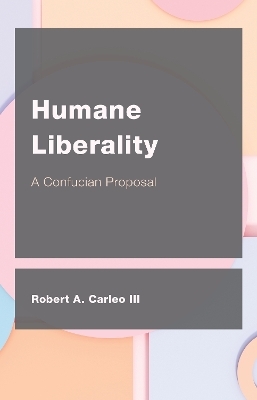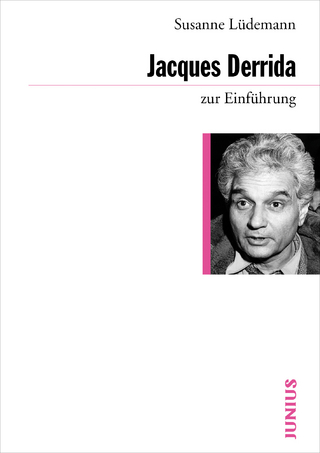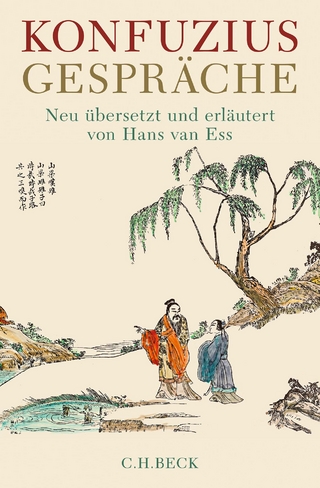
Humane Liberality
A Confucian Proposal
Seiten
2024
Rowman & Littlefield (Verlag)
978-1-5381-7494-4 (ISBN)
Rowman & Littlefield (Verlag)
978-1-5381-7494-4 (ISBN)
This book offers a concrete humanist argument for endorsing rights and liberties via the Mencian virtue of humaneness. Analyzing the problems and possibilities of affirming freedom, equality, and pluralism through Confucianism, the book advocates a novel paradigm for political deliberation through consideration of people's diverse interests.
Can we endorse valuable rights and freedoms—the cherished forms of equality and liberty we might call liberality—without liberalism? This book outlines such a possibility. Humane liberality upholds and deliberates equality, freedom, and justice through the Mencian virtue of humaneness, based in care and compassion. In positing humaneness to be the first virtue of government, Mencius directs us to formulate policies that are responsive to and promote the wellbeing of the people understood in terms of their actual lived and felt experience—their feelings and their flourishing. Rights and freedoms can and should be affirmed in ways that facilitate that flourishing. This pushes against the usual approaches to valuing rights and liberties of both Confucians and liberals, who tend to reason from abstract first principles rather than through care for people and responsiveness to their actual wants and needs. In setting out this vision, Humane Liberality first critically analyzes the broader problems and possibilities of affirming freedom, equality, and pluralism through Confucianism. It then outlines and promotes an underappreciated concrete humanist account of Mencian morality and politics, which has been overshadowed by more metaphysical orthodox interpretations of Mencius. Concrete humanism insists we adjudicate what is right not through eternal abstractions but instead through situated assessment of human emotions. In this way, humaneness offers a unique and uniquely compelling approach to reasoning about rights and liberties, and humane liberality recasts how we understand and practice Confucian values, liberal principles, and the promise and potential of incorporating the two.
Can we endorse valuable rights and freedoms—the cherished forms of equality and liberty we might call liberality—without liberalism? This book outlines such a possibility. Humane liberality upholds and deliberates equality, freedom, and justice through the Mencian virtue of humaneness, based in care and compassion. In positing humaneness to be the first virtue of government, Mencius directs us to formulate policies that are responsive to and promote the wellbeing of the people understood in terms of their actual lived and felt experience—their feelings and their flourishing. Rights and freedoms can and should be affirmed in ways that facilitate that flourishing. This pushes against the usual approaches to valuing rights and liberties of both Confucians and liberals, who tend to reason from abstract first principles rather than through care for people and responsiveness to their actual wants and needs. In setting out this vision, Humane Liberality first critically analyzes the broader problems and possibilities of affirming freedom, equality, and pluralism through Confucianism. It then outlines and promotes an underappreciated concrete humanist account of Mencian morality and politics, which has been overshadowed by more metaphysical orthodox interpretations of Mencius. Concrete humanism insists we adjudicate what is right not through eternal abstractions but instead through situated assessment of human emotions. In this way, humaneness offers a unique and uniquely compelling approach to reasoning about rights and liberties, and humane liberality recasts how we understand and practice Confucian values, liberal principles, and the promise and potential of incorporating the two.
Robert A. Carleo III teaches in the international graduate program in Chinese Philosophy at East China Normal University. He is editor and translator of The Humanist Ethics of Li Zehou and The Origins of Chinese Thought by Li Zehou, as well as co-editor, with Yong Huang, of Confucian Political Philosophy: Dialogues in the State of the Field.
Preface
Acknowledgments
Introduction
Part I: Confucianism and Liberality
1 How Confucians Can and Should Be Liberal
2 Confucian Freedom
3 Mencian Equality
4 Mencian Pluralism
Part II: Concrete Humanism and Humane Liberality
5 Mencian Humaneness and Concrete Humanism
6 Concrete Humanist Liberality
7 Mencian Humane Liberality
References
Index
About the Author
| Erscheinungsdatum | 18.10.2024 |
|---|---|
| Verlagsort | Lanham, MD |
| Sprache | englisch |
| Maße | 158 x 236 mm |
| Gewicht | 481 g |
| Themenwelt | Geisteswissenschaften ► Philosophie ► Östliche Philosophie |
| ISBN-10 | 1-5381-7494-4 / 1538174944 |
| ISBN-13 | 978-1-5381-7494-4 / 9781538174944 |
| Zustand | Neuware |
| Haben Sie eine Frage zum Produkt? |
Mehr entdecken
aus dem Bereich
aus dem Bereich


